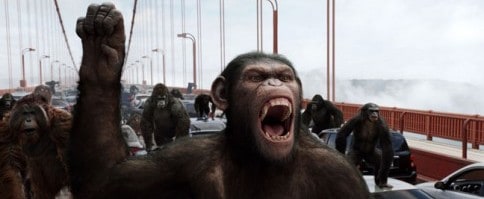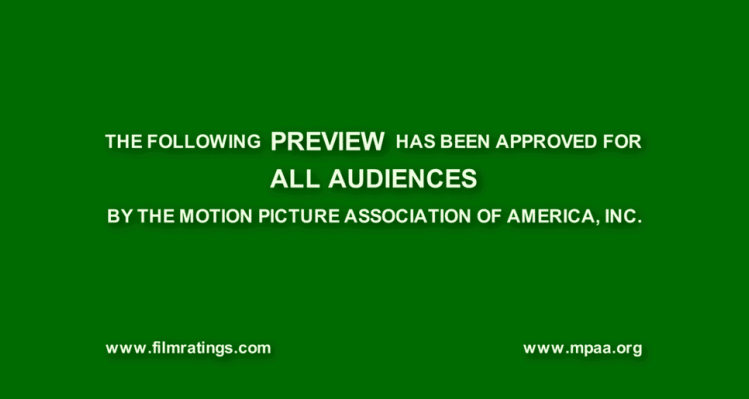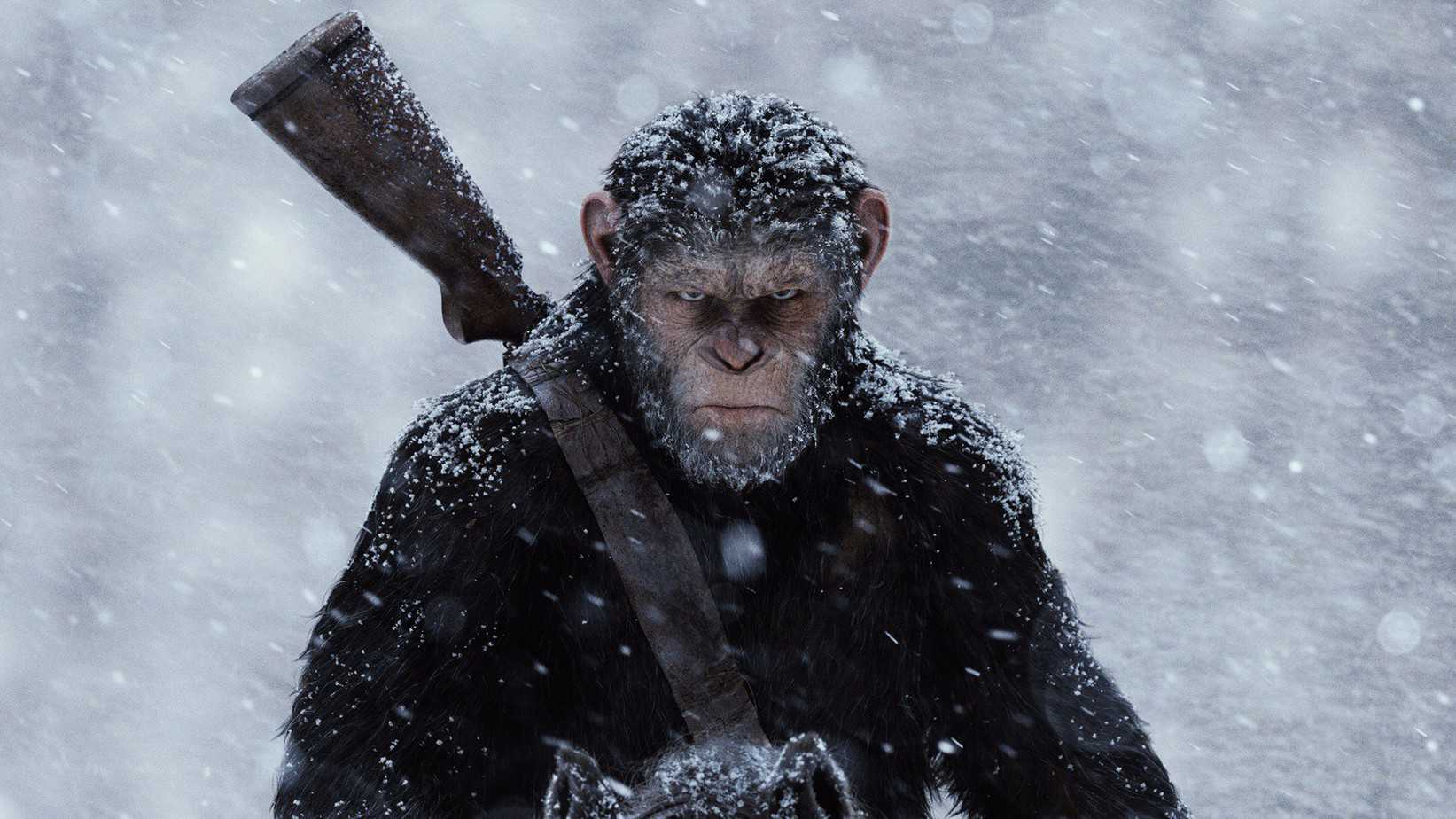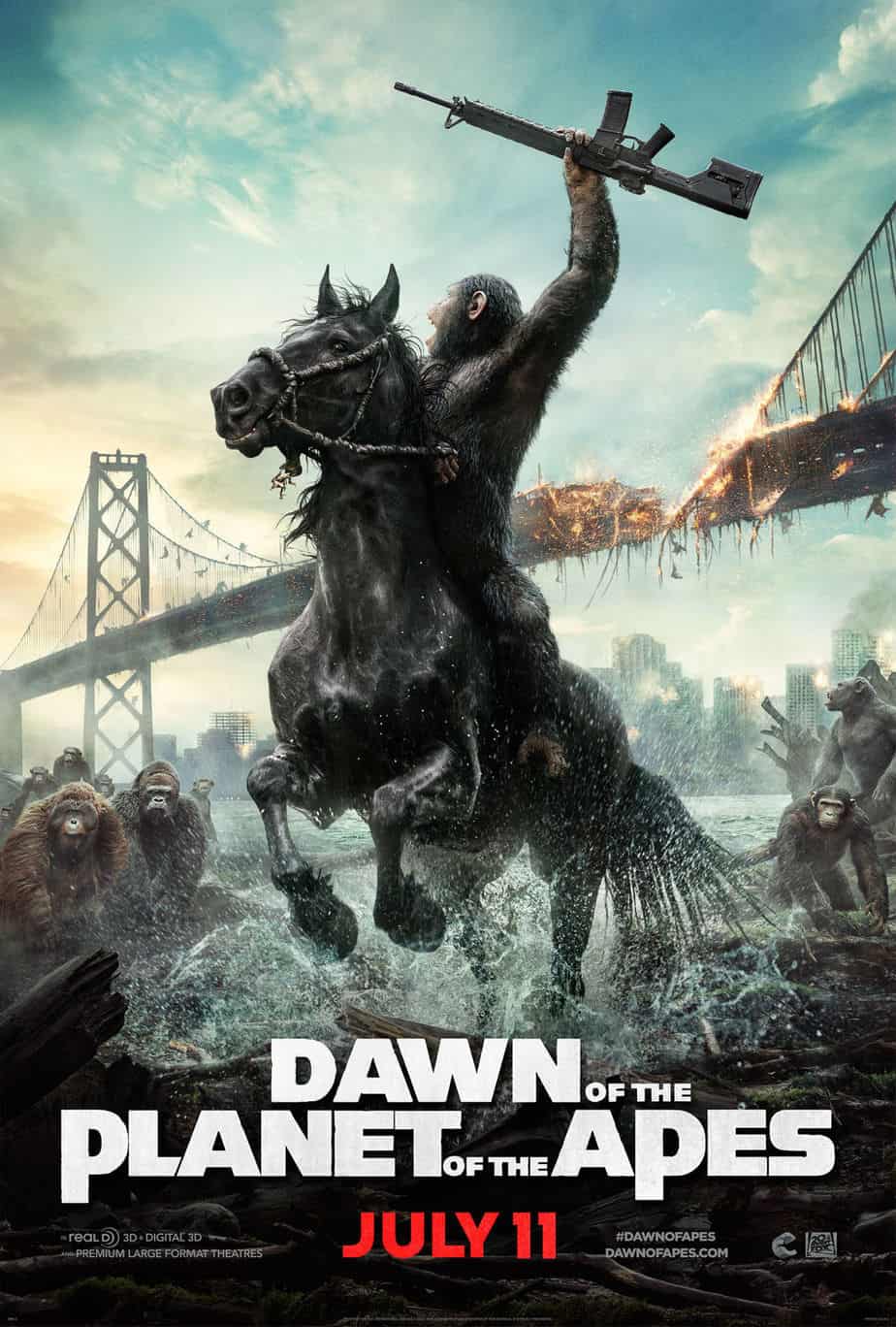Movie Review: ‘RISE OF THE PLANET OF THE APES’
If a couple of years ago someone told you that they were going to make a prequel to the 1968 film Planet of the Apes, would you believe them? After fans and critics across the board universally panned Tim Burton’s pretentious and clunky 2001 remake, why would a studio want to tackle the material only ten years later? Better question: Even though the original spawned four sequels in the 70’s that range from good to barely watchable, why would anyone in today’s day and age still be excited about this property? Constantly poked fun at, due mainly to Charlton Heston’s over-acting, the original Planet of the Apes is seen as much for fodder for jokes as much as it is heralded as a science fiction classic. Given these facts, I feel that 20th Century Fox has a lot working against them with Rise of the Planet of the Apes. Let’s see if this new and fresh approach will bring life to this dying series.
The film begins with James Franco playing researcher Will Rodman at Gen-Sys, a company that is currently experimenting with drugs that will help cure Alzheimer’s. While giving a presentation on the positive aspects of the new wonder-drug ALZ-112, one of the apes breaks loose causing a catastophic mess in the laboratory and board room. As a result, the wonder-drug and Rodman’s research is put on indefinite hold. When the company asks Will and his team to terminate the remaining test-subjects, Will is informed that the escaped test-subject, Bright Eyes, only acted out because she was protecting her new-born. It wasn’t the drug that caused the outburst. Unwilling to kill the new-born baby ape, Will smuggles the baby home to where he and his sick father live. Here, we learn it is his father (John Lithgow) that is the basis for Will’s determination to find a cure to Alzheimer’s. The new ape, named Caesar, had ALZ-112 pass over to him during the birth process and as a result quickly shows signs of increased intelligence. Pretty soon, Caesar is writing words, obeying commands, and using sign language to communicate to Will and his father. With these sure signs of the drug working, Will tests it out on his dad. For a long while, the father shows immediate signs of improvement. Unfortunately this doesn’t last long enough and he is soon back in an even worsened state than he was before. As a result of the sickness, the father accidentally backs Will’s car into the disgruntled neighbor’s car one day, sending the defensive Caesar in a panic. At this time, the authorities step in and remove poor Caesar from the house-hold and lock him in an ape sanctuary. It is here where young Caesar discovers the ugly side of humans and goes down a dark path.
At the risk of sounding like a cliche, it is almost Shakespearean to see the rise and fall of the young Caesar. Which in a lot of ways is the point the writers were going for. Caesar is the root of the story, and it is this complex and extremely realistic character that elevates this movie into more than just a summer film. Rise of the Planet of the Apes is not just one of the most entertaining films of the year, it is one of the most emotional and powerful character studies that has been released all year. If there was ever evidence to reward an actor for his contribution as a performance capture actor, it would once again be Andy Serkis. His excellent work was first seen in The Lord of the Rings films and later in King Kong, but nothing can compare to his work here. The combination of the talented team at WETA Digital and the performance of Andy Serkis has raised a new bar for digital effects. I have never seen CGI look this good before. Considering that I am one that consistently complains about the overuse of CGI, I was impressed. Granted, some of the far shots had a slightly digital look, but when the film was brought back to the main apes, I was sucked in once again.
The other thing that works well for the film is how director Rupert Wyatt handles the scope of the film. The film begins with a lot of close-up shots of the ape and his care-taker Will, and carefully builds to wide-angle shots of the inevitable ape attack. The final half-hour has a very cinematic broad look which is a welcome change to the more hand-held camera style that many action flicks have been using as of late. Even though we the audience know that the rise is going to happen, it doesn’t take away from the impact of the events that lead up to it. One such event that really triggers the culminating events, elicits both a sad feeling and a round of applause from the audience. It is exactly this roller coaster of emotions that sets Rise of the Planet of the Apes apart from some of the other movies released this summer.
This is not to say that the film is not without some minor flaws. In the hour and forty minute running time, the film is well paced and builds enough excitement leading up to the big finale. I unfortunately can’t help but think though that some character developing scenes were left on the cutting room floor. In the first hour or so, we do get a fair amount of set-up that shows Franco’s and Lithgow’s father and son relationship and Franco’s new-found romance to a veterinarian played by Freida Pinto. Yet, I can’t help but feel that some of these scenes felt slightly trimmed down in order to get back to Caesar. Because of this, Rodman’s change of heart in the third act feels rushed and Brian Cox, as a neglectful ape wrangler, comes off as a blink and you miss him caricature more than anything. Granted, I don’t blame them for this decision, because in all honesty . . . Caesar is the most interesting character to watch on-screen. Though, Franco has loosened up a bit since his stint as a host for the Oscars and gives a believable performance as someone who’s struggling to take care of two people at once.
The Rise of the Planet of the Apes works well as both a perfect prequel to the Charlton Heston starring original 1968 film, and as a successful reboot to a new potential series. There is a lot to like here for both fans of the series and newcomers to the monkeying around (I’m sorry . . . I couldn’t help myself). Newcomers will appreciate the unbelievable CGI and the smart script that moves this interesting story along. Fans of the series will appreciate the numerous nods to the original series and will applaud the appreciation that screenwriters Rick Jaffa and Amanda Silver clearly have for the original series. In the end, Rise of the Planet of the Apes is more than just amazing special effects and “wink wink” nods. The films tells a gripping story of how we define ourselves in today’s technological world. In the film, Will tries to not only cure his dad of his Alzheimer’s with his new invention, but he’s trying to make a name for himself. He’s trying to step out of the shadow that once was his brilliant father, which is evident in not only seeing the many certificates hanging on their home’s walls but in a few key scenes as well. While Will struggles with this, we also have Caesar. Although he is treated as more than just an ape, Caesar still struggles with the fact that he may be just a pet. It is this intersection of self-discovery that makes this film so smart and so unique for a summer film. They are both attempting to find who they are in this chaotic world. Yet, the real test is for the audience. Do we really know ourselves? By the end of the film, who do we find ourselves rooting for? It is this attention to important themes that helps this film rise to the leader of the summer pack.





